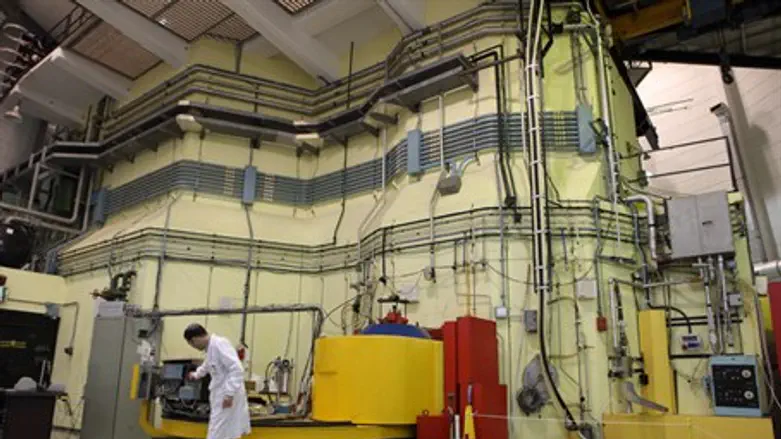
Arab nations are re-launching efforts to single out Israel for criticism at a major international conference by preparing a resolution over the country's alleged nuclear arsenal, according to The Associated Press.
The resolution suggests that the Jewish state's refusal to acknowledge it has such arms is threatening Middle East peace.
The Arab push was a mainstay of recent annual meetings of the 159-nation International Atomic Energy Agency, where it was usually narrowly voted down by Israel's allies. It was suspended in 2011 and 2012.
Israel has maintained a policy of “nuclear ambiguity”, refusing to confirm or deny whether it has nuclear weapons.
Israel is not a signatory of the Nuclear Non-Proliferation Treaty and, as a result, is not obligated to allow IAEA inspectors into its nuclear facilities, or abide by the international body's mandates regarding plant function.
Arab delegations have tried to put attention on the Dimona reactor, which they claim has been "overlooked" by IAEA inspectors for decades.
The renewed Arab push is reflected in a draft resolution seen by The Associated Press on Monday and endorsed by all 18 Arab members of the IAEA.
An official from one of the Arab delegations confirmed that the supporting nations even include Syria.
The resolution "expresses concern about the Israeli nuclear capabilities, and calls upon Israel to accede to the NPT and place all of its nuclear facilities under comprehensive IAEA" purview, according to AP.
The Arab official said the document was formally submitted to IAEA chief Yukiya Amano late Monday for inclusion on the conference agenda. An explanatory note from the Arab group accompanying it and seen by AP said the resolution was timely because "Israel alone possesses nuclear capabilities, which are undeclared and not subject to international control thus constituting a permanent threat to peace and security in the region."
The Arab League has unsuccessfully tried to convince the U.S. and European nations to join a campaign to end Israel’s policy of nuclear ambiguity. It has, however, seen some support at the United Nations. A UN resolution passed in 2010 called for a nuclear-free Middle East and singled out Israel for criticism, while ignoring Iran, whose former President Mahmoud Ahmadinejad constantly threatened to wipe Israel off the map.
